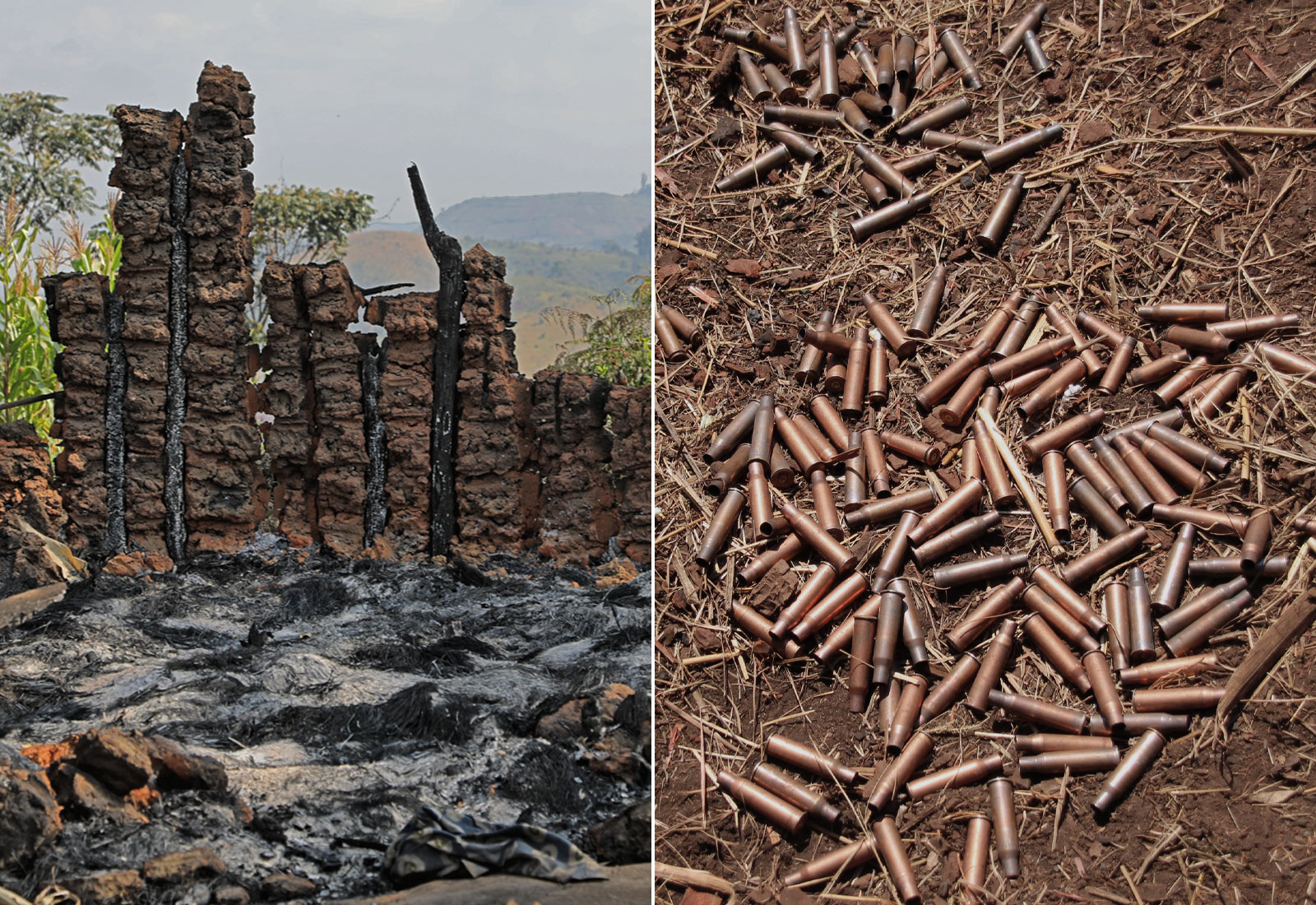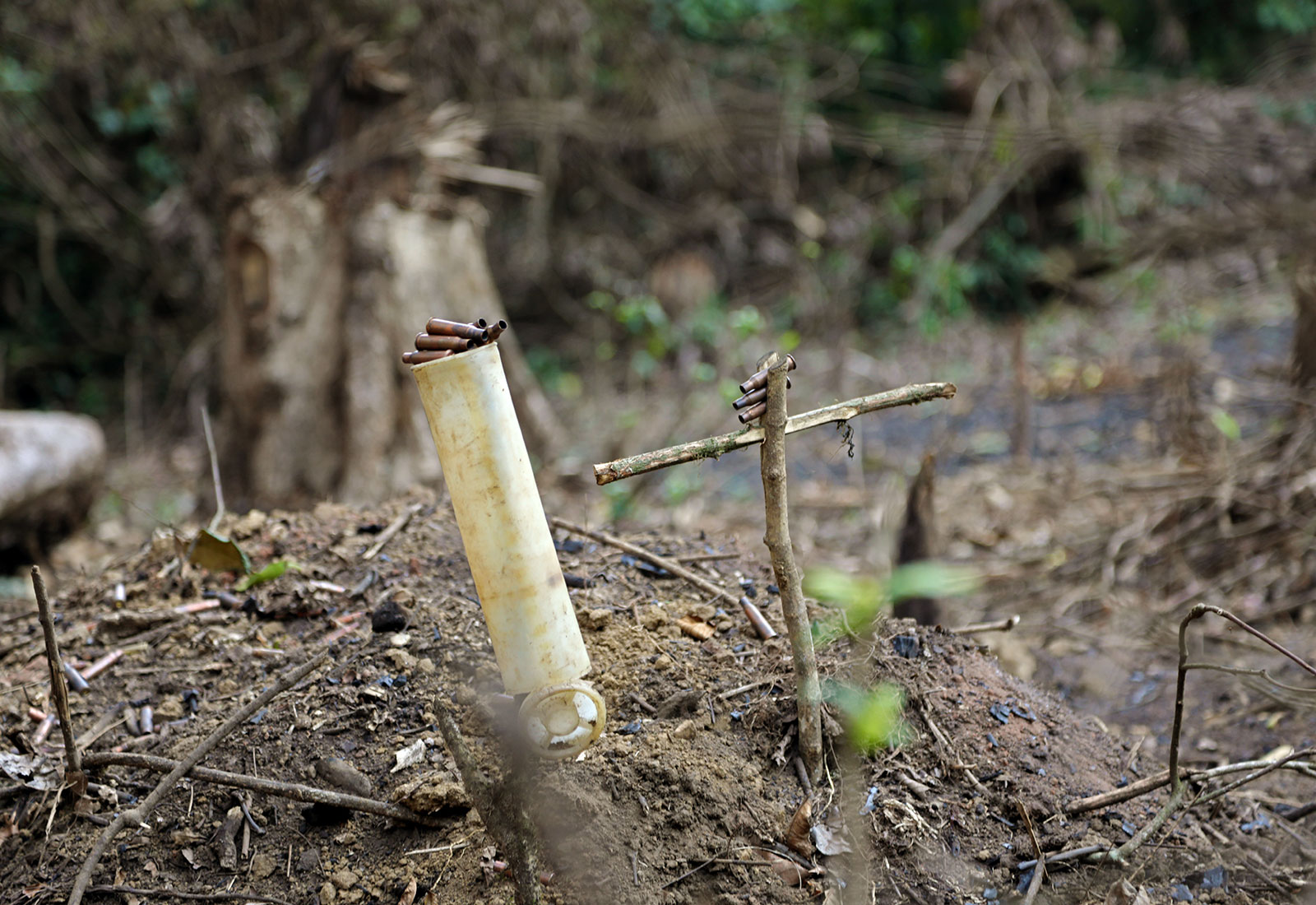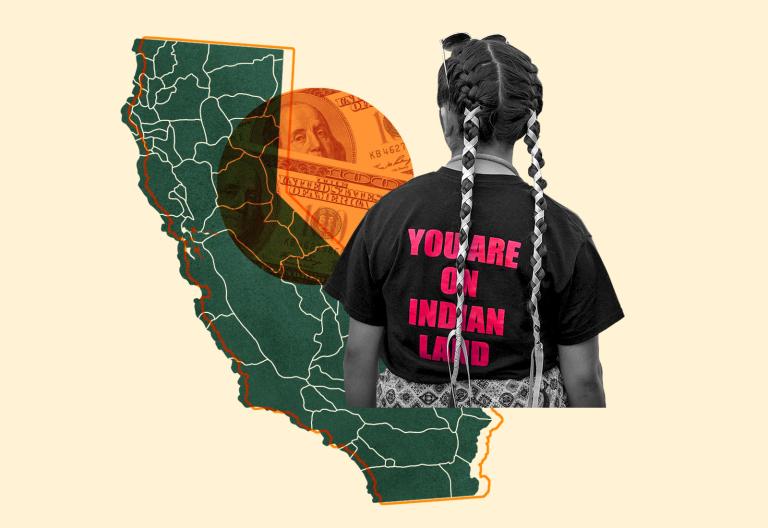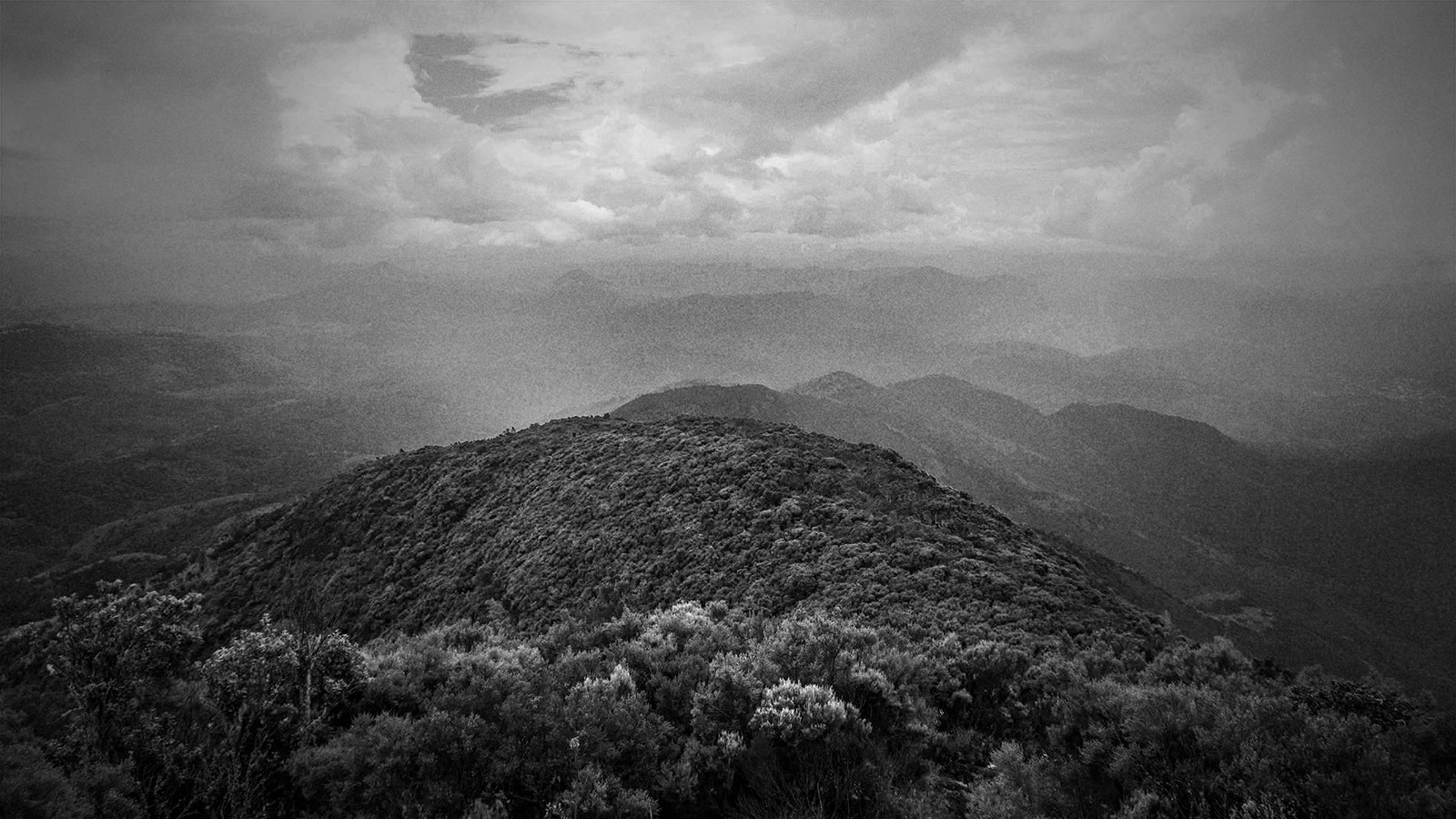In the Kahuzi-Biega National Park in the Democratic Republic of the Congo, park guards and Congolese soldiers, with support from international conservation groups, have undertaken a brutal, three-year campaign to violently remove the Indigenous Batwa people who call the park home. That’s according to a new report by Minority Rights Group International, a London-based human rights organization.
With support from the Wildlife Conservation Society, U.S. Fish and Wildlife Service, and the U.S. Agency for International Development, Congolese security forces have destroyed villages, murdered at least 20 residents, group raped at least 15 women, and displaced hundreds of Batwa in the name of conserving and protecting Kahuzi-Biega National Park, or PNKB. Batwa are an Indigenous people with communities throughout Central Africa and have inhabited the area that is now PNKB since time immemorial.
The report alleges that funding, material support, and training provided by international organizations and U.S. agencies violate a UN Security Council arms embargo as well as other international laws. Minority Rights Group International also alleges that organizations and agencies were aware of the attacks on Batwa, which took place between 2018 and 2021, and did nothing.
Lara Dominguez, Acting Head of Litigation at Minority Rights Group International and a lawyer representing Batwa, says the report helps to illustrate the fundamental problems with the global conservation model, which she says is fundamentally racist and hasn’t led to any real conservation.
“The PNKB’s donors and international partners demonstrated a flagrant disregard for international law and the rights of the Batwa people,” said Colin Luoma, an author of the report. “It casts serious doubt as to whether these actors are willing to place human rights at the center of their conservation work.”

The park was established in 1937, when the country was still a colony of Belgium, by Belgian decree. But even after independence, the newly established Democratic Republic of the Congo opted to expel Indigenous Batwa communities from the park’s boundaries at the behest of Belgian conservationist Adrien Deschryver who lobbied the government to expand the park. Batwa were neither compensated for their land nor given a new place to live. Instead, they were forced to settle on the outskirts of the park, where they faced persecution and discrimination. An estimated 50 percent of the population died in the two decades following expulsion.
“Since we were expelled from our lands, death is following us,” said a Batwa community leader at the time. “We bury people nearly every day. The village is becoming empty. We are heading towards extinction.”
In October 2018, fed up with decades of persecution and broken promises, Batwa began returning to the forest. But the response was swift and brutal: In February 2019, park guards began working with the Congolese military, efforts that were coordinated by General Charles Mundos, who had been sanctioned by the UN Security Council in 2018. In April 2019, PNKB’s Director, De-Dieu Bya’Ombe reportedly issued a public ultimatum to all Batwa in the park to leave or be killed.
Since then, the report’s authors have documented three waves of violence and displacement: the first in July-August 2019, the second in July 2021, and the third in November-December 2021. The report describes it as an “escalating campaign of terror and violence intended to expel Batwa from their ancestral home and deter their return.”
According to the report, attacks involved joint contingents of park guards and Congolese army soldiers using mortars and rocket-propelled grenades to destroy villages. They also subjected Batwa women to group rape at gunpoint, burned Batwa alive, and mutiliated corpses. Based on eyewitness accounts from Batwa and park guards, the report says that at least 20 Batwa were murdered in these attacks. The true number may be much higher because many Batwa fled into the forest and were never seen again. It is believed they may have starved to death.
In 2015, the U.S. Fish and Wildlife Service partnered with the Wildlife Conservation Society, or WCS, to improve law enforcement and wildlife security in the park. WCS worked with Maisha Group Limited, a private security company founded by an Israeli special forces operative, to provide training through 2017. About two months after the August 2019 attacks, the WCS brought a law enforcement consultant to the park to train park guards on weapons, combat, and patrol.
The Democratic Republic of the Congo is under a legally binding arms embargo by the United Nations Security Council, which means that member states providing “assistance, advice or training related to military activities” must notify the UN. The UN Security Council was not notified of any of these activities, which the report claims puts the Wildlife Conservation Society and US Fish and Wildlife in violation of the arms embargo.

Kahuzi-Biega National Park is a popular tourist destination where visitors from around the world pay over $1000 per person for safari tours to see gorillas. The park is a UNESCO World Heritage Site, recognized as an exceptional habitat for rainforest and gorillas. The UNESCO citation says “Although the greater part of the property is inhabited, some villages were included in the Park at the time of its extension in 1975, creating disputes with the populations. These problems must be resolved to strengthen the effectiveness of conservation actions.”
The Wildlife Conservation Society is a nonprofit that owns or supports parks and conservation projects around the world. In the U.S., that includes the Bronx Zoo, New York Aquarium, and the Central Park, Queens, and Prospect Park Zoos. In 2020, WCS apologized for its long history of racism and promised to do better.
In a statement, WCS said, “We strongly reject accusations that WCS was complicit in any of the alleged abuses described in the report. We are confident that all our activities in and around KBNP have been helpful and constructive to this end, and in full respect of the rule of law and human rights.” The statement also accuses Minority Rights Group of “numerous false accusations,” including any support or training of military forces.
A spokesperson for U.S. Fish and Wildlife said that “The U.S. Fish and Wildlife Service takes all allegations of human rights abuse seriously,” but did not respond to specific allegations about its role in the violence. A USAID spokesperson said that they are concerned about the situation and concrete steps need to be taken to address the management challenges in the park. USAID also said that its support for PNKB ended prior to the alleged incidents.
Lara Dominguez says that international complicity in violence against Batwa is an indictment of the way many conservation programs operate. “There’s no interest in actually informing themselves about what’s going on the ground,” she said. “What I see is a culture of willful blindness and plausible deniability.”
Minority Rights Group International reports that Batwa are still displaced from their homeland, facing poverty and persecution.
*Correction: This story originally used the wrong name for the Wildlife Conservation Society in two instances.




